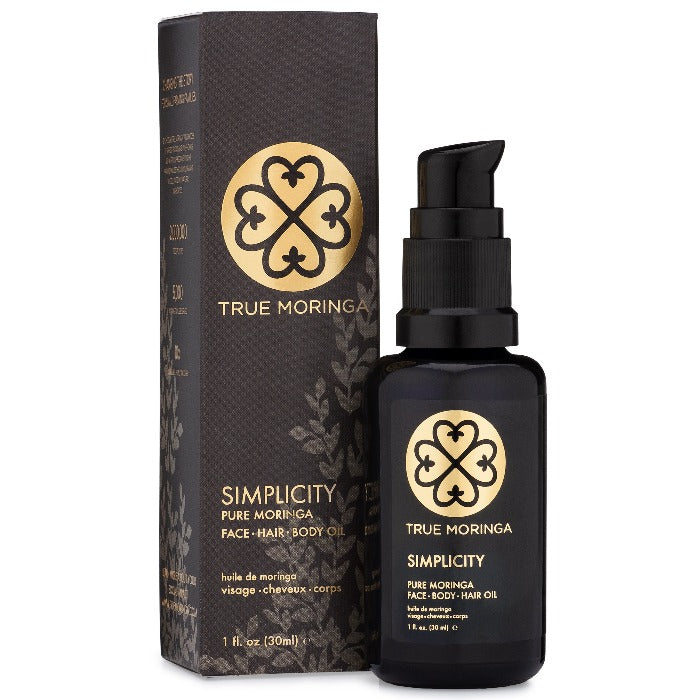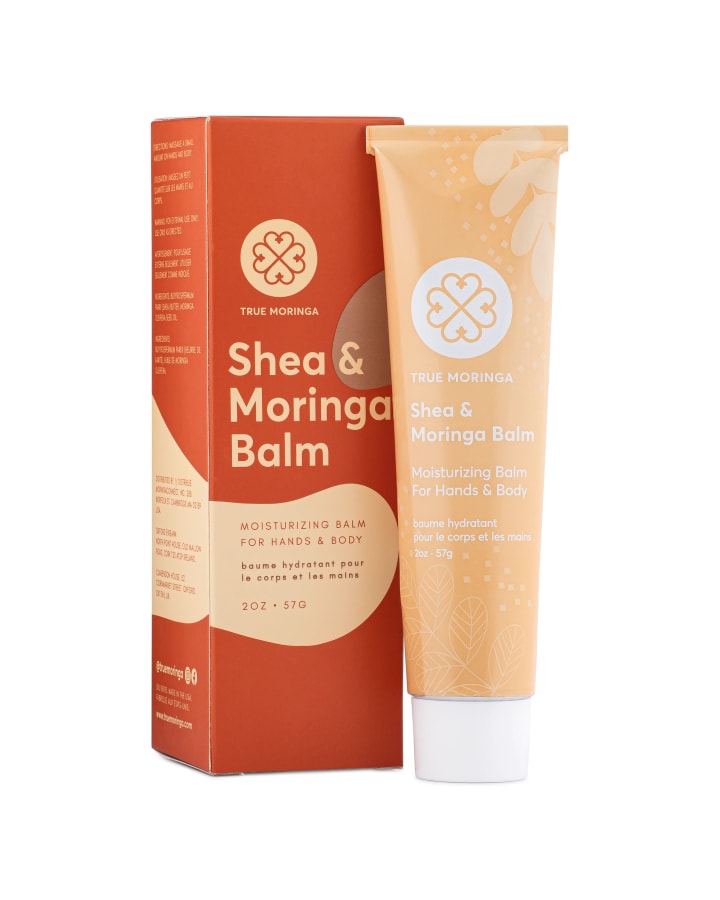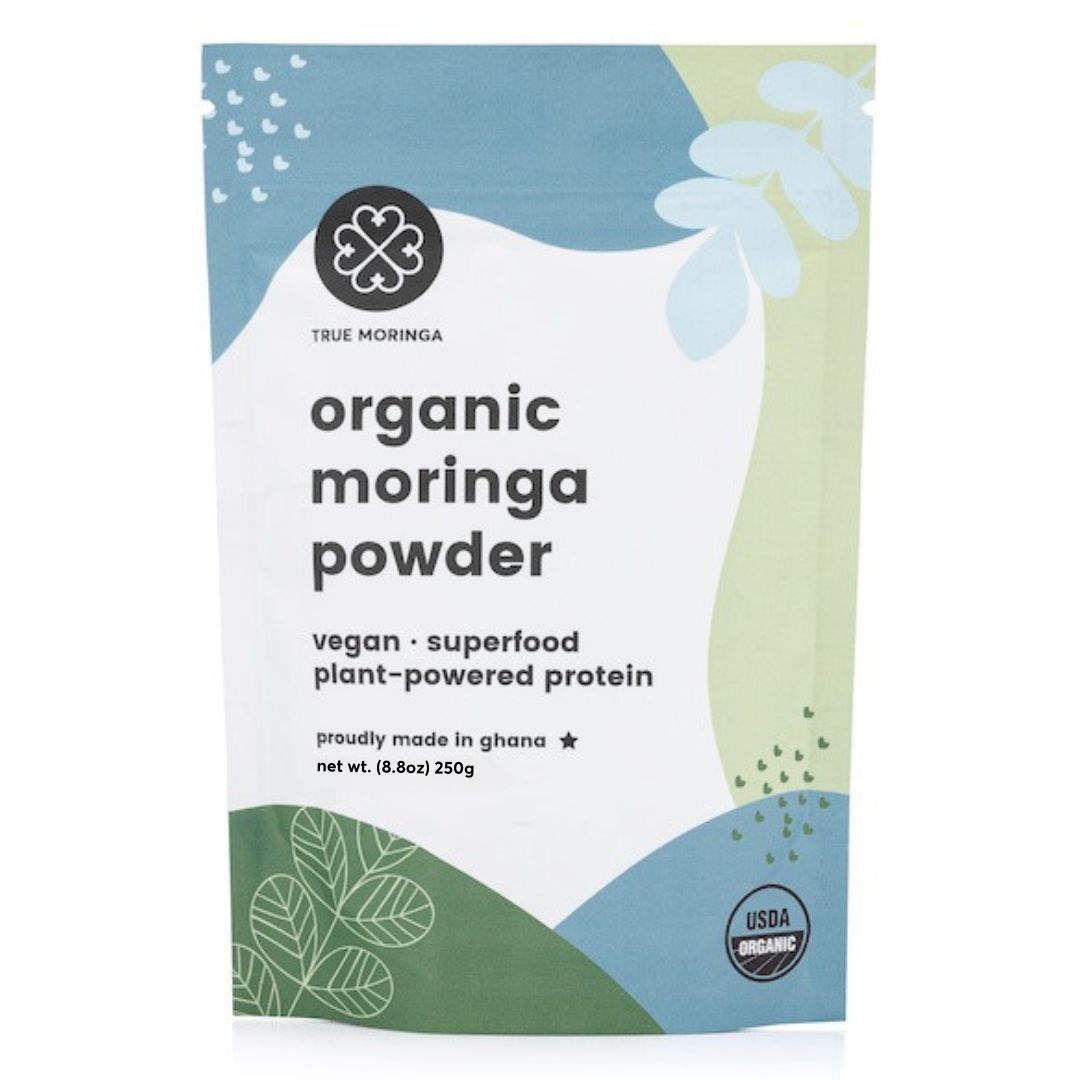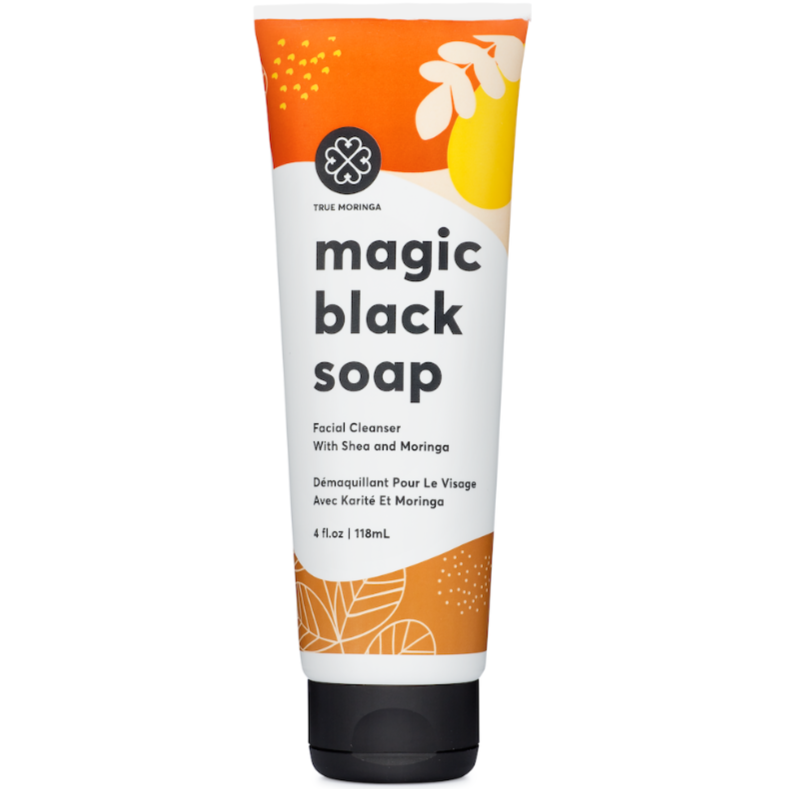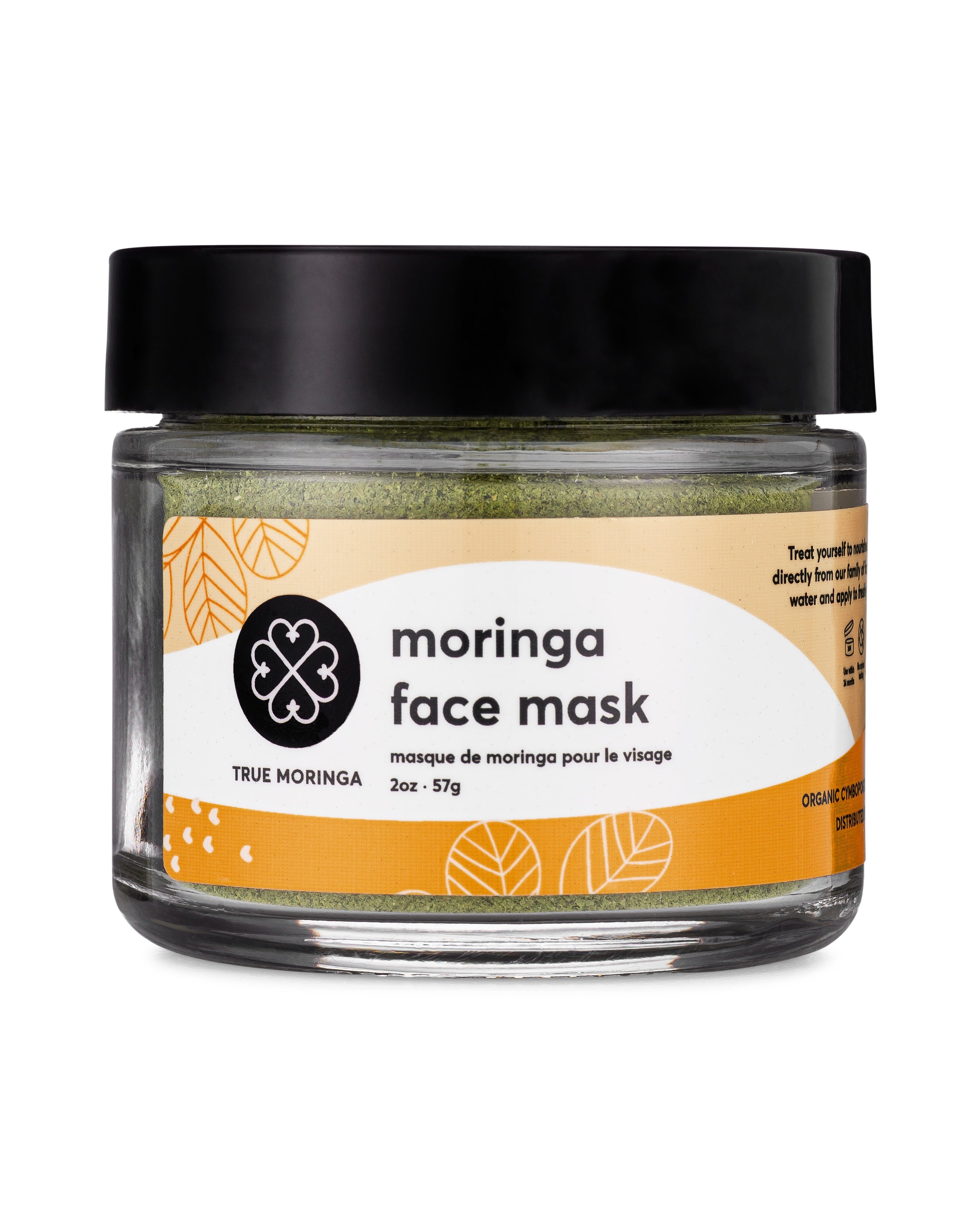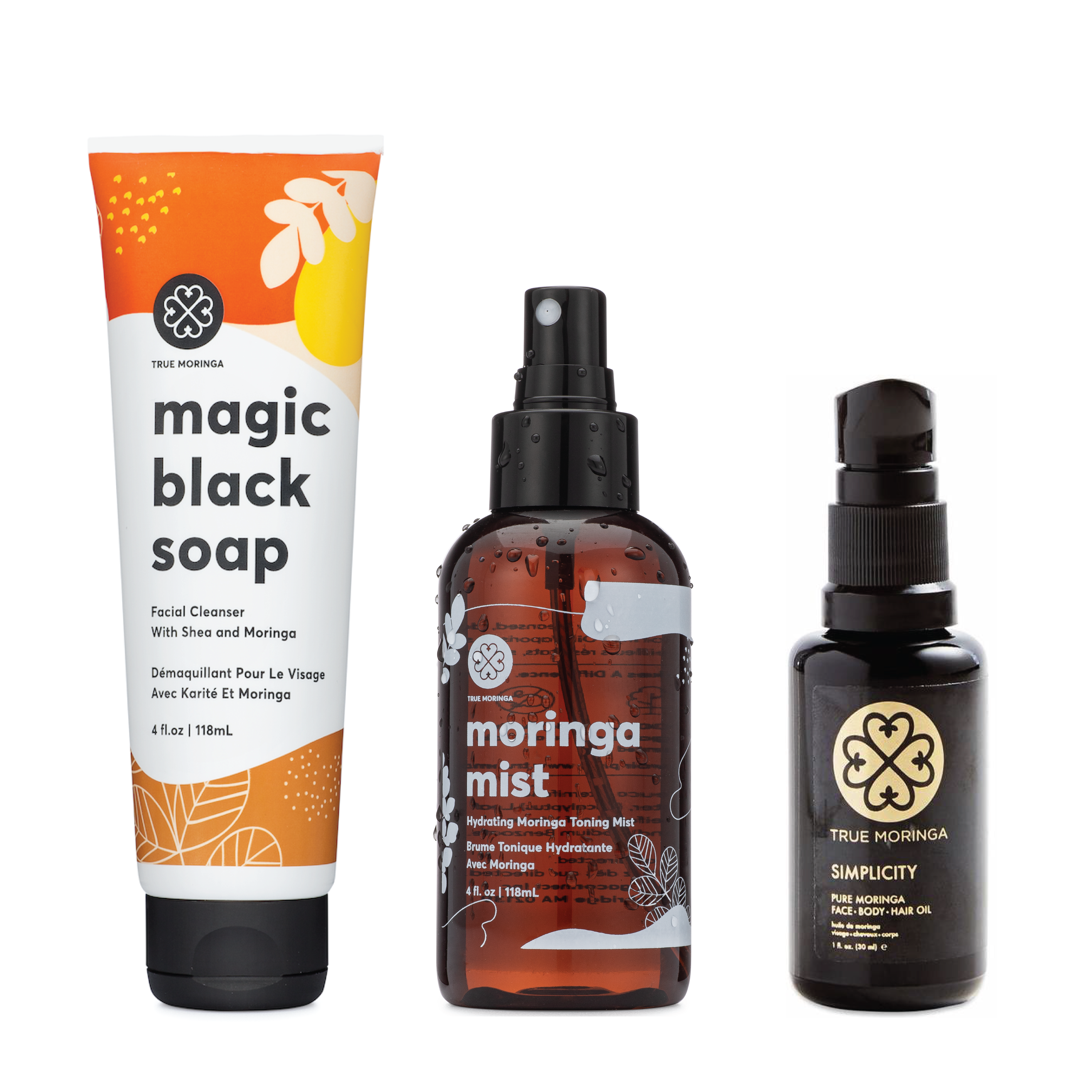


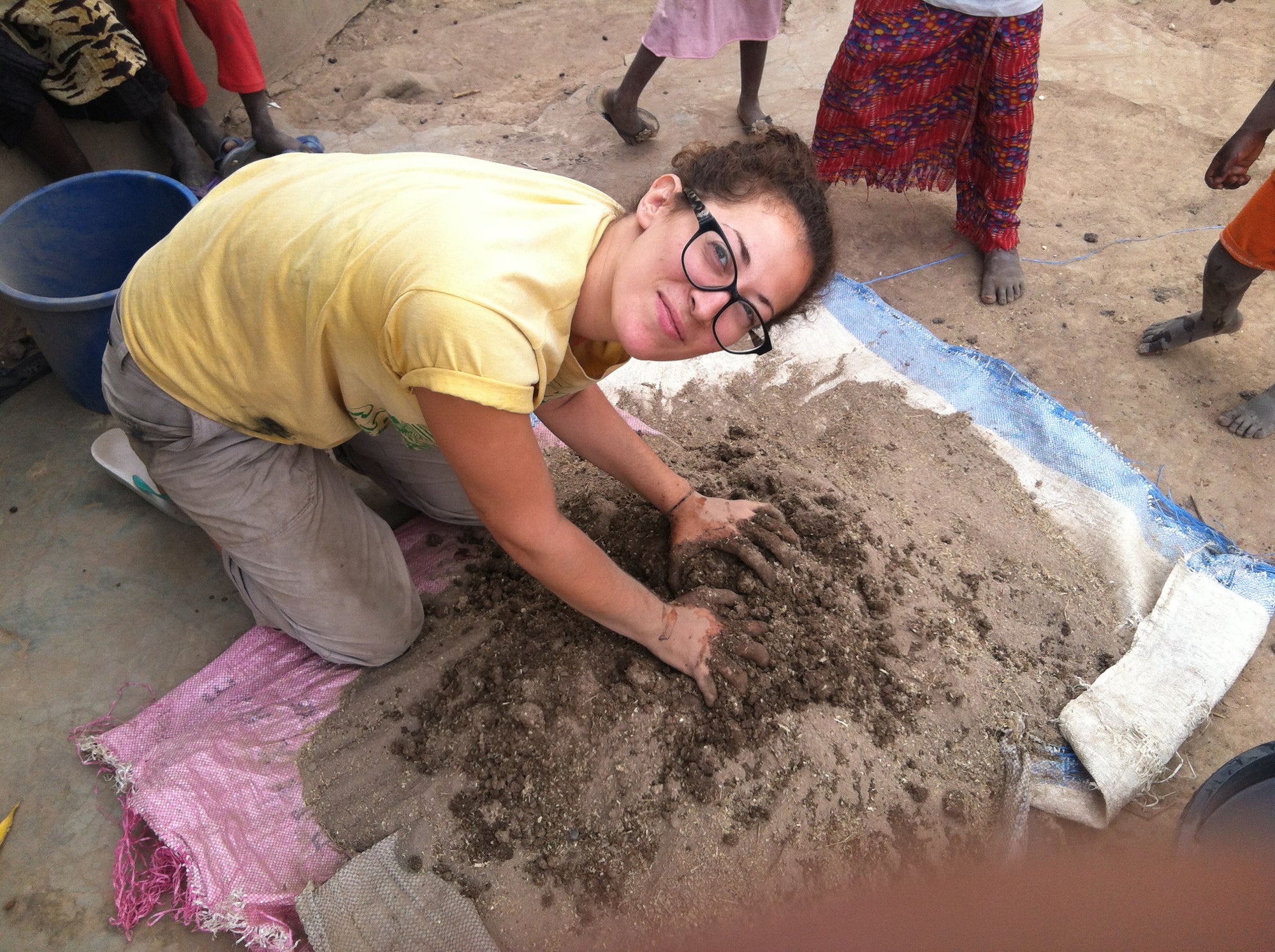
My Skincare Routine in Rural Senegal
Carson was a Peace Corps volunteer in Senegal from 2013 – 2016, and a future regular contributor to the True Moringa blog. She has a BA in International Development, and dabbles as an amateur videographer, a cook, a yogi, and an avid traveler.
When I first arrived in Senegal I was excited and nervous to start my life as a Peace Corps Volunteer. There are so many wonderful things to love about the country, from the welcoming culture to the vibrant colorful fashion—unfortunately the climate is not one of them.
Senegal is hot and arid. Walking around in flip-flops, the dusty earth made my feet dry out and crack, while the sun took its toll on my face and arms. Laundry is done by hand, using harsh detergents, and then hung out to dry in the sun, leaving clothes rough and stiff. Then, for three months of the year, a deluge of rain brings damp, muddy conditions, making skin especially susceptible to infections, like staph.
At the time, I was new to natural beauty, but determined to explore locally made options rather than rely on sporadic care packages or trips to the capital. Besides, the heavily scented soaps and lotions my mom sent me were only irritating my sensitive skin.
I started paying attention to what the women in my village were doing to take care of their bodies, and mirrored my purchasing off theirs. It turns out that in every boutique (small general store common in even the most remote parts of Senegal), you can find locally produced peanut and carrot soap, both of which are unscented, and contain natural ingredients with medicinal properties. I completely switched to these natural soaps for both my skin and my laundry.
I was also fortunate to live near the southeastern, Shea-producing region of Senegal. There, a product I’d always thought of as luxurious and elegant is packaged into repurposed 1 liter water bottles, and sold for about $3 at the market. (It’s also heated and eaten fresh in the liquid form, which I’m told is delicious, though I never had the opportunity to try it).
I bought fresh Shea by the liter, and would slather it onto my feet and hands before bed, often sleeping in socks to seal in the moisture. I also became religious about my sunscreen application, and was careful to wear long sleeves and a hat when working outdoors, no matter how hot it was. Most importantly, I stayed hydrated. With so many external forces drying out my skin, it was important to drink plenty of water to keep my skin moist from the inside.
Like so much of my Peace Corps experience, self care was a challenge at the beginning, but my openness to changing my routine and trying local alternatives actually made me more aware of the products and ingredients I put on my body, which is a lesson I’ve taken with me that has affected my purchasing habits in the US since coming home.

